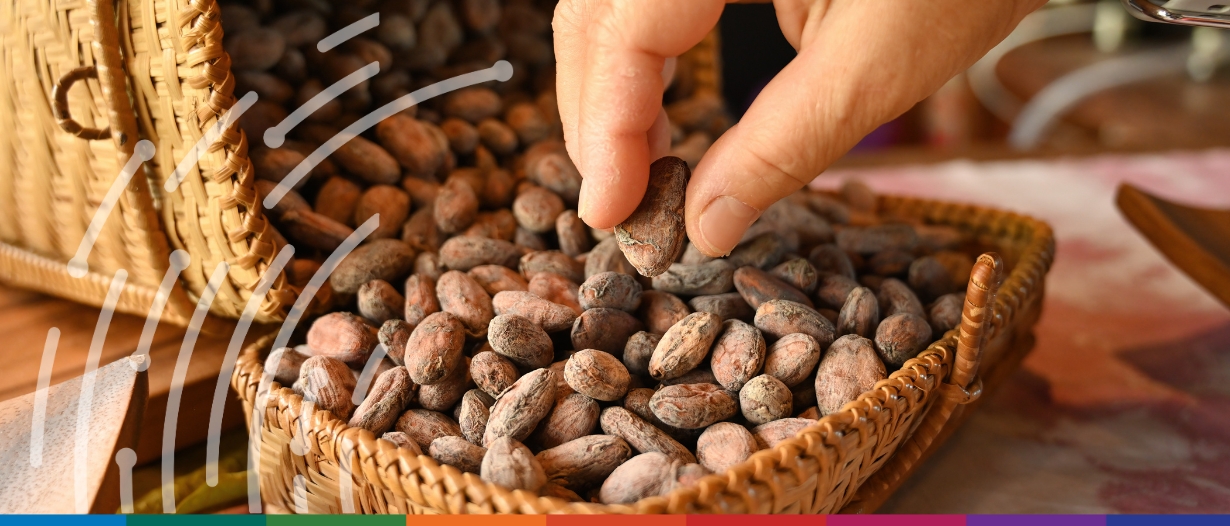Estimated reading time: 4 minutes
Many moons ago, one of my boss’s mantras was ‘time is more precious than meat’. This was repeated every morning during our daily sales meetings. Those days, I sold ‘air time’ in the media industry.
If a program was aired on radio or television without an advert that generated income, that time was unrecoverable. One cannot store time like one would store meat. This statement has continued to be true for me in my commercial career. The sales pressure then and now is the same… only now, its higher because I am not just chasing financial return on investment but also social return for millions of households in Africa and the Middle East.
Fast forward to 2023. In my role as the Commercial Director at Fairtrade Africa, my role entails developing and executing a robust International Commercial strategy that will provide market access for 1.3M smallholder farmers and workers domiciled in 28 countries in Africa and the Middle East. These farmers and workers are engaged in the production of export commodities like cocoa, coffee, tea, flower, and sugar among others.
A global group, with local solutions
Fairtrade Africa is part of the Fairtrade International movement. Fairtrade changes the way trade works through better prices, decent working conditions and a fairer deal for farmers and workers. The majority of the farmers and workers are found in Africa, Latin America and Asia Pacific.
As a leader in the global movement to make trade more equal, Fairtrade supports and challenges businesses and governments, and connects farmers and workers with their customers. By choosing Fairtrade, people can create change through their everyday actions.
A product with the FAIRTRADE label means producers and businesses have met internationally agreed standards which have been independently certified. Farmers and workers have a strong voice at every level of Fairtrade, from how they invest in and run their local organisations to having an equal say in Fairtrade’s global decision-making.
Some of the tools that Fairtrade employs have had a great impact on international trade. The tools are:
- Fairtrade Minimum Price – a safety net prices set for most products that aims to cover the average costs of producing crops – a vital safety net when market prices drop,
- The Fairtrade Premium – an extra sum of money paid to farmers and workers on top of the selling price to invest in their business or community projects of their choice,
- Fairtrade Standards – promote sustainable production (SDG12) & inclusive, transparent & accountable cooperative governance,
- Beyond Certification Projects – Fairtrade facilitates developmental projects for farmers and workers to propel their social, economic and environmental community projects.
On a typical day, my colleagues and I are in trade meetings negotiating the increase in the share of Fairtrade certified products portfolio with many traders, manufacturers and retailers. The key diver behind this is to get more volume from our farmers and workers sold on Fairtrade terms. This means that they can receive fair prices and premiums to keep them farming and live the lives they desire.
Most of the farmers and workers have market access across Europe, America and Australia. In most of these countries, products with the Fairtrade mark are trusted and recognised by a majority of the consumers. The Fairtrade mark influences purchase decisions because of the impact that has been generated for over 30 years.
Case study: Chocolate production
After COVID-19, a shift in the market access arena has been noticed. Farmers and workers are now looking to fulfil local demand for sustainable products.
In Ivory Coast, we have an exciting new product development project underway: chocolate production by small-holder farmers. SCOOPS-SAHS (société coopérative simplifiée SABARIKAGNI du Haut-Sassandra) is a small-holder cocoa cooperative in the central part of Ivory Coast. Leading this remarkable producer group is a highly motivated and passionate woman aiming to become a prominent female chocolatier from the Ivory Coast, which happens to be the world’s largest cocoa producer.
Ms Sanata attended entrepreneurial training and business linkage opportunities organised by Fairtrade that spurred her spirits and desire to break a business barrier. Ms Sanata decided to lead her cooperative into a cocoa value addition to capture more value for the 1,084 farmers under her leadership. Ms Sanata is working with 46 women to produce high-quality chocolates. At this test stage, she is able to produce 6 metric tons of chocolate per month in 2023… doubling their income from processed cocoa as compared to selling raw cocoa beans of similar volume. Very impressive! SAHS is already putting up a modern chocolate factory in Daloa that will be commissioned later his year.
Their initial focus is on selling their high-quality creations locally, but they have ambitions to expand internationally.
This development in international cocoa trade is very significant, as it demonstrates a shift in the trading environment. Local producers in other value chains like coffee and tea are also gearing to move up the value chain by processing (in full or in part) products that they would normally have sold as raw materials. Another thing to watch is the shift in business models – where governments are putting measures in place to ensure more value is left in-country as part of economic growth and empowerment for middle and small enterprises (MSMEs).
The time is ripe for international trade experts to look at generational business models and adopt/re-design them for the future.
Otherwise business will perish much faster than meat.
























